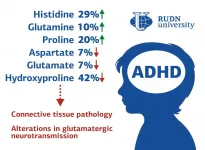The two camps together account for a significant proportion of citizens in all countries: more than one-third in Germany (Fig. 3.1) and almost three-quarters in Poland (Fig. 3.4). In liberal democratic states like Germany, the proportion of 'Defenders' is 20% and that of 'Explorers', 14%. In France and Sweden, 14% and 29% 'Defenders', and 11% and 15% 'Explorers', respectively, were observed. In a semi-authoritarian country like Poland, where according to the researchers the government provides populist support to the 'Defenders' opinions, the proportion of both groups combined is 72%. "This shows how much the conflict can escalate in a country: the polarized positions can grow to form the majority", says Mitja Back. "The degree to which a population becomes polarized and how far feelings of threat and narrow ideas of identity also entail feelings of disadvantage and mistrust therefore vary depending on the political system. This suggests that identity conflicts are open to political influence".
Who are 'Explorers' and 'Defenders'?
5,011 respondents in Germany, France, Poland and Sweden took part in the survey, which the Cluster of Excellence conducted with "Kantar Deutschland" at the end of 2020. Its authors are the sociologists Detlef Pollack and Olaf Müller, the psychologists Mitja Back and Gerald Echterhoff, and the political scientist Bernd Schlipphak. Their Working Report, "Of Defenders and Explorers: An identity conflict over belonging and threat" (http://go.wwu.de/izpgb), provides initial results. Drawing on the detailed results on more than 20 questions examined, they used cluster analyses to form groups comprising people with very similar attitudes and displaying strong differences one from the other. This yielded the patterns of 'Explorers' and 'Defenders' across all questions.
In all countries, the 'Defender' group largely endorse a narrow definition of who belongs to their country, with only those belonging who were born in the country, have ancestors of the ethno-national majority, and/or belong to the dominant religion. They therefore defend traditional criteria such as ethnic and religious homogeneity. At the same time, 'Defenders' feel rather threatened by foreigners such as Muslims and refugees, and consider themselves rather disadvantaged. They are also more dissatisfied with democracy and more distrustful of political institutions.
The 'Explorer' group, on the other hand, reject a narrow definition of belonging based on ethno-religious criteria. Its members do not feel threatened by foreigners, but instead see immigration and growing diversity as an opportunity, and they also advocate a society with many notions of life oriented towards equality. They see themselves as being well represented by the political system, are more satisfied with democracy, and are more likely to trust political institutions. In semi-authoritarian Poland, however, where the government provides populist support to 'Defenders' positions on ethno-religious homogeneity and protection against foreigners, the 'Explorers' also feel disadvantaged and are dissatisfied with democracy and government.
The two groups also differ strongly in cultural, religious, psychological and social terms (Figs. 3.6 and 3.7), with 'Defenders' in all countries being far more attached to home and religious than 'Explorers'. The former also have a stronger preference for social hierarchies and trust other people less, while the reverse is true of the latter. 'Explorers' also tend to be quite young, highly educated, more likely to live in a city, and less likely to be affected by socio-economic hardship. Except in Poland, 'Defenders' are more likely than 'Explorers' to be found among the elderly and the low educated. They tend to live in rural areas and, again with the exception of Poland, consider themselves to have a lower social status.
Political effects and recommendations
The cultural conflict also has strong political effects: 'Defenders' favour populist parties and believe much more in the concept of a "strong leader"; they are also prone to conspiracy theories and advocate elements of direct democracy. 'Explorers' hold diametrically opposed views. For example, 26% of 'Defenders' in Germany and 57% in Poland are likely to vote for a populist party (Fig. 6.6), while 'Explorers' tend not to.
According to the researchers, this can represent fundamentally different concepts of politics: 'Defenders' favour concepts more in line with anti-pluralist ideas that claim that political regulations should express a single popular will; 'Explorers', in contrast, share attitudes more compatible with pluralist ideas that claim that politics is a process of negotiation and compromise between different interests. Mitja Back: "A person's positioning in the conflict as 'Explorer' or 'Defender' can have a strong impact on the form of democracy desired. Cultural conflicts over identity have therefore become very entrenched politically, and now structure the population's social and political views to a significant extent".
By linking their results to other insights from current research, the authors see the polarized positions as being rooted in fundamental and rather stable psychological needs of varying strength, such as security and stability ('Defenders'), or openness and change ('Explorers'). According to the report, this implies that societies are always composed of a mixture of 'Explorers' and 'Defenders'. In contrast to more material conflicts, the identity conflict is therefore more difficult to negotiate, and especially so when ideas of identity are framed in religious or fundamentalist terms. Identity conflict is also exacerbated by the effects of globalization, such as migration, increasingly supranational instead of national policies, and crises such as the financial crisis and the Covid 19 pandemic. "This makes questions of identity - who belongs to the country, or who triggers feelings of threat - all the more urgent".
The researchers therefore urge politicians to refrain from taking one of the two sides. Neither in liberal democracies nor in authoritarian countries has this led to movement in entrenched conflicts, as at least one group always feels excluded. Rather, it is important to take the underlying psychological needs on both sides seriously, and to understand them as social resources, while tracing the sometimes widely divergent demands of both groups back to their functional core. "In this way, it is possible to filter out which positions are not acceptable to each group, and which are open to negotiation. Only by doing so can we find a basis for compromise that currently seems impossible, as well as space for dialogue without one side devaluing the other". (vvm/sca)
INFORMATION:
Detailed results behind the core findings: a selection
The researchers back up their core findings on the groups of 'Defenders' and 'Explorers' with detailed results for individual countries and for the factors that determine the identity conflict.
Results underline that 'Defenders' and 'Explorers' occupy polarized positions. In Germany, for example, 61% of 'Defenders' advocate a narrow definition of ethno-religious belonging; 49% feel threatened by Muslims, and 55%, by refugees; 45% feel culturally disadvantaged; and only 21% are satisfied with democracy, with only 11% trusting the government and parliament. In contrast, in the group of 'Explorers', less than 15% have a narrow, ethno-religious definition of belonging, none feel threatened or marginalized, and a large majority (93%) are satisfied with democracy and trust political institutions (the federal government, 100%; the EU, 99%). Similar results were obtained for France and Sweden.
Poland is an exception. In this semi-authoritarian country, where the government supports 'Defenders' positions such as the desire for ethno-religious homogeneity and protection against foreigners, 29% of 'Defenders' and 49% of 'Explorers' feel politically marginalized. The latter are also dissatisfied with democracy in the country and distrust the government, whereas they have a high level of trust in the EU (74%). 'Defenders' in Poland are satisfied with democracy in the country (57%), and have a high level of trust in the government and parliament (72%), but far less trust in the EU (32%). Society is much more divided than it is in other countries, with 'Explorers' and 'Defenders' making up 72% of the population in Poland. "The example of Poland shows that the political system and political communication influence how divided a society is, and how much each group feels marginalized and accepts democratic institutions".
In Germany, the two groups differ in socio-cultural, religious and psychological terms as follows: in the 'Defender' group, 33% have a high level of religiosity, 52% feel more attached to home than to the world, 34% believe in social hierarchies, and 31% are sceptical of other people. In contrast, 24% of 'Explorers' are strongly religious, 31% have a strong attachment to home, 4% believe in social hierarchies, and 3% have little trust in people. The other countries show similar tendencies here. (vvm/sca)
Survey methods
The Working Report "Of Defenders and Explorers: An identity conflict over belonging and threat" presents results of a survey conducted at the University of Münster's Cluster of Excellence "Religion and Politics" as part of the project "Threat perceptions, feelings of belonging, acceptance of democratic rule: A new religiously shaded line of conflict in Europe?" Its authors are the sociologists Detlef Pollack and Olaf Müller, the psychologists Mitja Back and Gerald Echterhoff, and the political scientist Bernd Schlipphak.
Survey fielded via random sampling in four European countries (Germany, France, Poland and Sweden) in line with the highest methodological standards
Survey period: 9 November to 18 December 2020
5,011 participants (in Germany, 1,402; 506 of whom from the five federal states in the east and Berlin; in France, 1,208; in Poland, 1,200; in Sweden, 1,201)
CATI procedure (CATI: Computer Assisted Telephone Interviewing)
Consideration of landline and mobile phone numbers (dual-frame sampling design)
Conducted by the market research company "Kantar Deutschland" (Berlin)
Participants answered questions on ten themes (see overview below), initially on the following four factors that are central to identity conflict: definitions of national belonging, feelings of threat, feelings of disadvantage, and perception of political representation and governance. Added to these were cultural, religious and psychological factors, as well as social characteristics such as age, gender, education and region, which at the end were weighted to avoid bias. Most factors are composed of several individual questions (items).
The researchers applied the statistical instrument of cluster analysis to the detailed results on all factors examined. Cluster analyses enable researchers to find out whether the landscape of opinions shown by the survey can yield distinct social groups in the identity conflict. The existence of such distinct social groups has been discussed, but not yet empirically verified. The study demonstrated two consistent groups across all factors and countries, whose members show very similar attitudes, and who as groups show strong differences from each other. This resulted in the pattern of 'Explorers' and 'Defenders'. (sca/vvm)
Structure of the survey
A) Factors determining identity conflict
1) Definitions of national belonging (such as questions about an ethno-religious definition of belonging)
Example question: "Some people think that the following things are important to be a real German. Others think that they are not important. How do you rate these things? In your opinion, to be a real German, is it very important, quite important, not very important, or not important at all that a person ...
has been born in Germany?
has lived in Germany for most of her life?
is a Christian?
has German ancestors?"
2) Threat perceptions (e.g. questions about feelings of threat from Muslims and refugees, since these minority groups most often appear in discourses of belonging)
Example questions (agree/disagree): "Muslims threaten our way of life and our values in Germany", "The values and beliefs of Muslims are not compatible with the general values and beliefs in Germany", "Muslims threaten the economic situation in Germany", "Muslims living here threaten public safety in Germany", "Because of Muslims, there are more acts of violence in Germany"
3) Feelings of disadvantage (such as questions about economic, political and cultural recognition or marginalization)
Example questions (agree/disagree): "The work of people like me is not recognized enough in society", "No matter how hard we work, people like me are not appreciated", "The problems of people like me are unimportant to most politicians", "Most politicians do not care what people like me think", "The values of people like me have are becoming less and less important in society", "The customs, traditions, and manners of people like me are less and less appreciated"
4) Political representation and governance (such as questions about satisfaction with democracy, and trust in the national government and the European Union)
Example questions (agree/disagree): "All in all, I am satisfied with how democracy works in Germany", "For the following public institutions or groups of people, please indicate how much you personally trust each of them - Bundestag, federal government", "For the following public institutions or groups of people, please indicate how much you personally trust each of them - the EU"
B) Social, cultural, religious, psychological and political factors
5) Socio-demographic characteristics (age, level of education, residential area)
6) Assessments of the socio-economic situation (e.g. questions about where respondents would position themselves on an imaginary social ladder, or their assessment of the economic situation of their own country)
7) Socio-cultural factors and attitudes (e.g. questions about contacts with Muslims, degree of attachment to home, and national pride)
8) Personality traits and social attitudes (e.g. questions about trust in people in general, belief in social hierarchies, and right-wing authoritarianism)
9) Religion and religiosity (e.g. questions about religious affiliation, church-based religious practice, and fundamentalist positions)
10) (Desired) models of political governance (e.g. questions about approval of liberal democracy and of populism, and about the conspiracy mindset)
Example questions (agree/disagree): "Democracy is a good form of government", "There should be a strong leader who does not have to worry about parliament and elections", "The country is ruled by a few large interest groups looking out for themselves", "The will of the people should be decisive in this country's politics", "There are many important things happening in the world that are controlled by influential groups without the public's knowledge"
(sca/vvm)









